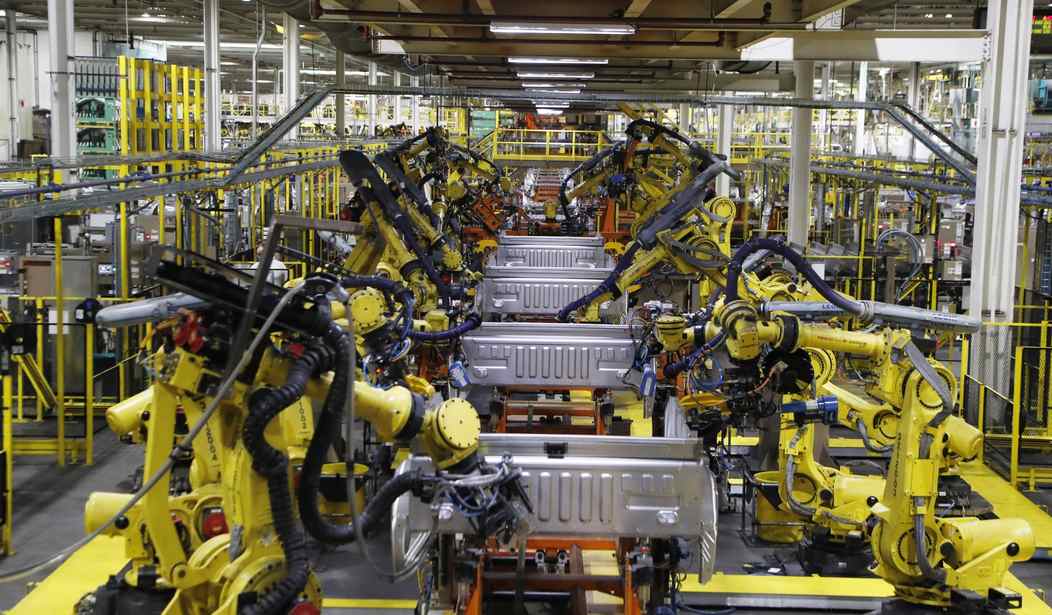We have come to really enjoy this turnkey method that allows for insta-villainization of business sectors perhaps a little too much — and that’s the act of simply attaching the word “Big” to it. Lay the “Big” slap, and suddenly everyone scurries to talk more intense scrutiny, regulation, and even dismemberment. A sector going about its business — often one that involves technology and innovation with intricacies that few actually understand — morphs overnight into some menacing dragon that must be slain lest it gobble us all up. Sometimes, of course, this is warranted. Some certainly bring it upon themselves.
But not all “Big” is “Bad.” Sometimes “Big” is good. Sometimes, “Big” works. And I know you saw what I did there.
Think of automakers at the turn of the 20th century. In the earliest years, there were hundreds of individuals making cars. But the process was slow and inefficient. Each car was made by hand, and while the craftsmanship was high, each car was unique. That made them difficult to replicate and difficult to repair, and spare parts didn’t even exist.
Auto sales didn’t pick up until a handful of manufacturers such as Ford, Chrysler, and GM consolidated the industry and introduced economies of scale in manufacturing. By running the cars down an assembly line, they made more cars more quickly, and they were all the same. The companies got bigger, but the opportunities did as well.
Mechanics could learn to repair cars, which created millions of jobs. Entire industries grew up around serving drivers, from motels to restaurants to gas stations. This created millions more jobs.
Then the big car companies started outsourcing the production of important parts. This created new industries that the automakers relied on but didn’t control. As big as they were, companies such as GM could be shut down by wildcat strikes at companies that provided parts. In more recent years, Elon Musk has gone back to the vertically-integrated model, with Tesla making almost everything that goes into its cars. It could be an MBA case study: The circle of business life, seen over a 125-year period.
Today, we are witnessing something similar in real-time. “Big Tech” is under fire from many in Congress, and people are piling on because, well, “Big.”
For example, the Senate is considering the sweetly-named American Innovation and Choice Online Act to regulate any large “website, online or mobile application, operating system, digital assistant, or online service” that allows users to interact, trade, or search for information. “Large” would mean having 50 million users, sales exceeding $550 billion, and being a “critical trading partner” for business users. This bill, sponsored by progressive darling Sen. Amy Klobuchar (D-Minn., bless her heart), will shift power from the private sector to leftist federal bureaucrats for the end goal of seizing control over some of the most successful businesses in America.
The bill is a recipe for economic disaster.
Begin with the subjectiveness involved. The word “critical” will have a different meaning for everyone, so any company might be covered or not covered, depending on how the government uses that one word. My favorite think tank, The Bipartisan Policy Center, adds that the bill would target those who “unfairly” prefer their own “products, services, or lines of business” and “unfairly” limit another company’s “products to compete against the platform’s operator and discrimination in the enforcement of these regulations.”
Everyone wants systems that are fair. But who decides fairness? In this case, it would be bureaucrats in Washington. Perhaps the same FCC that regulates broadcasting or another alphabet soup group of unelected bureaucrats.
One of the agencies that will be given more power is the Federal Trade Commission, run by Chair Lina Khan. The U.S. Chamber of Commerce points out that Chair Khan is a “radical” who “eliminated all references to the FTC’s antitrust enforcement mission of supporting market forces” upon taking office. More power to the FTC spells doom for the economy because bureaucrats will be feverishly regulating the tech industry into oblivion.
If Republicans allow this law to pass, bureaucrats will never be able to catch up. They’ll spend years regulating aging technology, but by the time they find fault with one social media platform, it will have gone the way of Tumblr (once worth $1.1 billion) and MySpace (once worth $580 million).
Judging “fairness” must remain a task for the invisible hand of the free market.
When nobody is being hurt, governments shouldn’t consider regulating or breaking up a company. And at a time when prices on everything from food to fuel are soaring, the price of most “big tech” offerings remains free. Social media posting is free. E-mailing is free. Long-distance calls, once so expensive you paid for them by the minute, are free.
“Big Tech” is delivering big savings in this situation even as it enhances people’s lives. Instead of jacking up prices as its products improve, “Big Tech” is literally giving them away. Better searching. Faster connection. More entertainment. Free. That is unique in American history. This is not “Bad.” Vilifying it is.
These companies are still rolling out new and better products every day. Just ask a teenager what platforms she uses — chances are the rest of us haven’t heard of them yet but will be using them soon enough. Meanwhile, politicians can’t figure out a way to deal with the real and growing problems the country is facing. But as I often say as I feel a rant a-coming, that is another column.










Join the conversation as a VIP Member